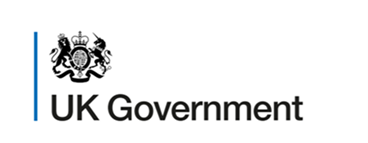LCVS would like to extend an invitation to organisations and communities to get involved in the Innovation in Communities Project. An exciting new pilot project led by LCVS with support from the UK Government’s Community Renewal Fund and Liverpool City Region Combined Authority.
Our first event as part of the project will be an online event at 1pm – 4pm on Thursday 16 December.
What is the Innovation in Communities Project?
Innovation in Communities is an LCVS led project, intended to support communities to address local needs by providing or testing effective, new or innovative approaches.
It includes a £500,000 small grants programme, supported by mentoring and advice, as well as events known as Communities of Practice events. These events are intended to support groups interested in accessing the grant funding as well as those more broadly interested in sharing idea and innovations about how to bring about positive change to local disadvantaged communities.
The project intends to support communities to:
- Improve places and spaces
- Support people into employment
What is the Community Renewal Fund?
This project is part-funded by the UK Government through the UK Community Renewal Fund.
The Government has introduced the fund as it prepares for the launch of the UK Shared Prosperity Fund in 2022, which will replace EU Structural and Investment Funds
This project received £497,000 from the UK Government through the UK Community Renewal Fund, supported by additional LCVS resources.
What is involved?
- Innovation in Communities Fund.
The Innovation in Communities Fund is a new grant programme, combining support from the Community Renewal Fund and LCVS’s own grant making programme, to create a new £500,000 grant programme.
Small grants of up to £7,500 will be available to not -or-profit organisations based in and benefitting the borough of Liverpool for activities taking place between March – May 2022, that can offer innovative solutions to local needs.
Priorities for the fund include:
- Improving places and spaces
- Improving green spaces/preserving assets-e.g. Improvements to natural environments within urban areas
- Culture-led regeneration–e.g. feasibility studies/projects attracting people to places.
- Net-Zero/local energy projects-feasibility studies into green-viability/clean-energy projects
and
- Supporting people into employment
- Services supporting journey’s towards employment
- Projects removing barriers to employment including long-term issues-e.g. confidence-building, CV writing, interview preparation.
- Basic skills development/training/mentoring opportunities that improve prospects
- Innovation Community of Practice
A series of events that will provide space to explore and test ideas and find solutions to issues in the community.
The events will provide share experiences and best practice and get to know more about activities on the ground.
Events will also include opportunities to inform policy makers to inform decision making, as well as opportunities to support groups that receive funding to learn about opportunities to sustain their projects beyond the pilot project period.
- New entrant support
We recognise that not all the solutions to community need come from established organisations. As such, a key part of Innovation in Communities is to support new entrants into the not-for-profit sector.
We will do this by providing capacity building, advice and mentoring for eligible individuals/communities looking to establish/run projects through a series of workshops and one-to-one sessions.
- Capacity building/sustainability/resilience support
This is an ongoing programme of support throughout the project and includes advice, support and mentoring for those seeking to apply to the Innovation in Communities Fund as well as support those wanting to design/fund activities beyond the project’s lifetime.
Alternatively, if you have any questions about the Innovation in Communities Project, contact info@lcvs.org.uk or (0151) 227 5177.
NOTES FOR EDITORS:
The UK Community Renewal Fund is a UK Government programme for 2021/22. This aims to support people and communities most in need across the UK to pilot programmes and new approaches to prepare for the UK Shared Prosperity Fund. It invests in skills, community and place, local business, and supporting people into employment. For more information, visit https://www.gov.uk/government/publications/uk-community-renewal-fund-prospectus










